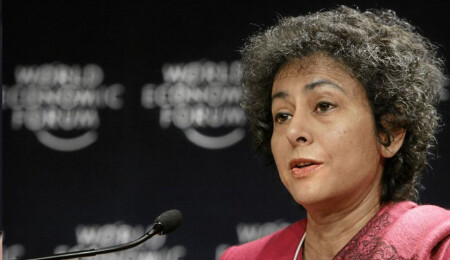UN Special Rapporteur Raises Concerns Over Press Freedom in Northern Cyprus

The United Nations High Commissioner for Human Rights, Special Rapporteur on the Promotion and Protection of the Right to Freedom of Opinion and Expression, Irene Khan, has raised concerns about suppression and censorship actions, raising questions about the state of press freedom and freedom of expression in Northern Cyprus.

Expressing concerns about the potential negative impact of such actions on the ability of all media outlets and journalists to continue their work, Special Rapporteur Khan called for action regarding the judicial harassment and censorship targeting Turkish Cypriot Journalist Ali Kişmir.
According to a statement from the Human Rights Platform, Irene Khan, the Special Rapporteur on the Promotion and Protection of the Right to Freedom of Opinion and Expression, sent letters to Turkish President Recep Tayyip Erdoğan and Turkish Cypriot leader Ersin Tatar regarding the harassment, intimidation, and censorship suffered by journalist Ali Kişmir, the President of the Cyprus Press Workers' Union (Basın-Sen).
The letter stated that Kişmir, a Turkish Cypriot journalist known for his criticisms of Turkish Cypriot leader Ersin Tatar, had been repeatedly targeted by both Turkish Republic and Turkish Cypriot authorities due to his journalistic activities. Special Rapporteur Khan indicated that they had acquired information indicating that Kişmir's work had been subjected to censorship, intimidation, and legal prosecution following his exposé of a secret meeting between Turkish officials and National Unity Party members during the 2020 Turkish Cypriot leadership elections, where he criticized Turkey's intervention in Turkish Cypriot affairs.
Expressing concerns about Kişmir's mental and physical health, the Special Rapporteur stated in the letter that following this incident, Kişmir was denied entry into Turkey, and a legal complaint was filed by the "Prosecutor's Office" in Northern Cyprus, alleging "insult and defamation of moral personality" by the security forces, which carries a sentence of up to 10 years in prison. Additionally, Kişmir was forced to resign from the media organization where he worked due to political pressure following critical articles about Mr. Ersin Tatar.
Special Rapporteur Irene Khan expressed serious concerns that the persecution faced by Mr. Kişmir constituted a clear violation of international human rights standards, particularly the right to freedom of thought and expression. She emphasized the importance of providing a safe environment for the protection of dissenting voices and enabling journalists to operate without fear of suppression or prosecution.
In the letter, the Special Rapporteur requested a response from the authorities within 60 days and called for interim measures to prevent further violations and hold perpetrators accountable. On March 18, 2024, the Republic of Turkey's Geneva Office responded to the letter, emphasizing Turkey's sovereign right to refuse or permit entry to foreigners and asserting that the measures taken against Ali Kişmir were in accordance with international law and national legislation.
This issue was also highlighted in the Human Rights Council's 55th Session report on Human Rights in Cyprus.




Comments
Attention!
Sending all kinds of financial, legal, criminal, administrative responsibility content arising from illegal, threatening, disturbing, insulting and abusive, humiliating, humiliating, vulgar, obscene, immoral, damaging personal rights or similar content. It belongs to the Member / Members.